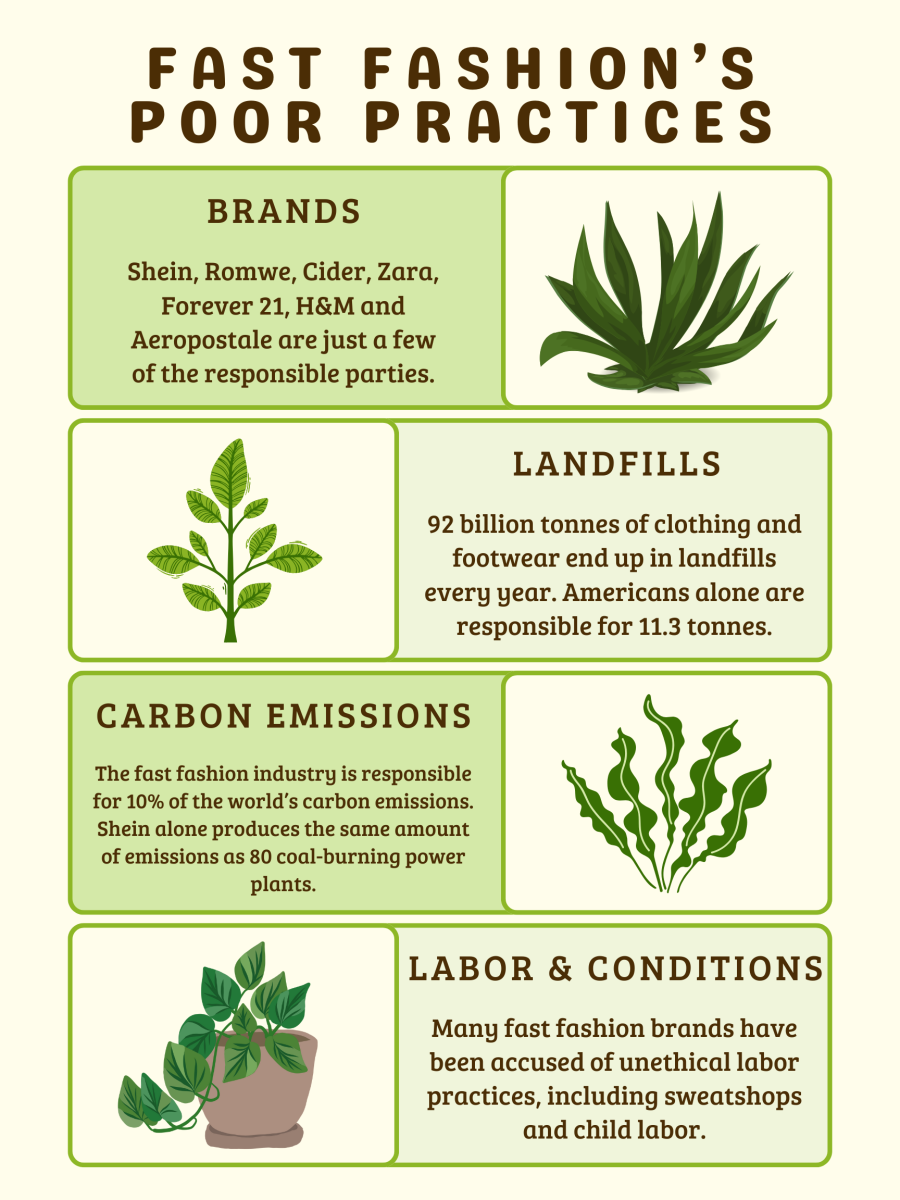Fast Fashion – a term people have popularized to describe the practice of companies creating clothing to keep up with trends that are bound to fall apart within months, or even weeks, of purchase. An enemy to sustainability and the environment, fast fashion has a grip on the summer because it is cheap, it is affordable, and it is cute – until it unravels.
Most internet shoppers have heard of Shein and Romwe, as well as their reputation for clothing that is quickly produced and affordable. However, what many people have not heard, or at least paid any attention to, is Shein’s use of child labor and other unethical labor practices, as well as their horrifically large carbon footprint.
As of recently, Shein has also been accused of stealing designs from independent fashion designers and selling lower quality copies of their work. According to Synthetics Anonymous 2.0, a report published on fashion sustainability, Shein is responsible for the same amount of carbon dioxide emissions as 80 power plants fueled by coal due to their unsustainable practices using polyester (a plastic-based synthetic fabric) and oil.
Shein claims that they will be committing to reducing their carbon emissions by 25% by 2030, but this is yet to be seen.
Shein has also been criticized for their poor labor practices, including overworking and underpaying their workers. Similar conditions have been reported and accusations made toward other fast fashion brands.
But even consumers who have heard of Shein and Romwe’s horrible practices sometimes miss that some of their favorite brands are also conducting these unethical environmental and labor practices. H&M, Aeropostale, Zara, and Forever 21 are also guilty of playing into the fast fashion industry.
In 2023, H&M faced backlash from consumers and faced a lawsuit accusing them of conducting misleading advertisements and “greenwashing” of the company’s products. Forever 21 has not commented on or attempted to reduce their carbon footprint, and has many other controversies echoing that of Shein, like thieving from independent designers.
The fast fashion industry as a whole is responsible for 10% of the world’s carbon emissions, and according to Earth dot org, of the about 100 billion garments produced every year, about 92 million tonnes of them end up in landfills. The average American consumer will throw away about 81.5 pounds of clothing every year.
The unfortunate part? Lower income individuals often do not have better options than to turn to fast fashion in order to buy affordable and “classier” or more comfortable clothing for themselves. Second-hand and thrift stores are becoming ever more expensive, even though they are supposed to be more affordable. So what happens then?
The bottom line is do not support fast fashion companies given the option, but if there is no other option, there are other ways to reduce fashion consumption carbon footprints. Buy from “slow-fashion” or smaller brands when possible, recycle clothing that can no longer be worn because it is worn out, stained, ripped, or otherwise ruined, and consider donating nicer clothing that no longer fits or that is not worn often.
Researching the practices of a brand is incredibly easy in today’s day and age, considering the internet is at the fingertips of everyone, even school children, on a daily basis.
Avoid supporting fashion influencers, or other social media influencers across any platform, who make videos or posts about “Shein hauls” or other fast-fashion hauls because ultimately engagement gives them a paycheck for supporting unethical and environmentally damaging practices. It might even pay for these hauls if they are not doing it for a brand endorsement and were not provided with the clothing for free.




